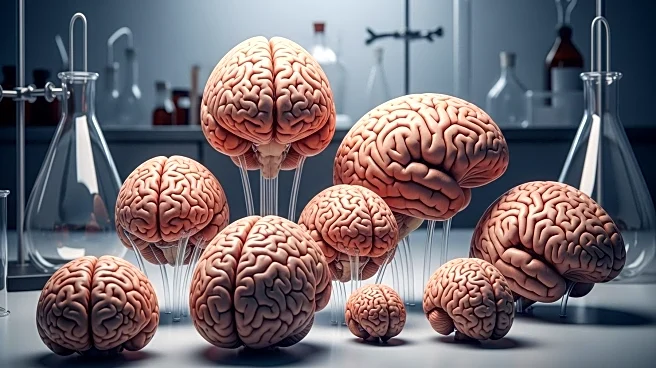What's Happening?
Brain organoids, pioneered by Madeline Lancaster, are revolutionizing brain research by providing insights into human brain development and disorders. These organoids, derived from human embryonic stem cells, mimic early brain tissue stages and are used to study diseases like microcephaly. They offer a unique window into the complexities of the human brain, which cannot be replicated in animal models. The research is uncovering differences in stem cell behavior between humans and other species, potentially leading to new treatments for mental health and neurodegenerative diseases.
Why It's Important?
The development of brain organoids is crucial for understanding the human brain's unique characteristics and addressing neurological disorders. These organoids allow researchers to explore genetic differences that contribute to human brain development, offering potential pathways for treating conditions like schizophrenia and Parkinson's disease. The ability to model human brain diseases in vitro could lead to breakthroughs in drug development and therapeutic strategies, addressing long-standing challenges in mental health treatment.
What's Next?
Future research will focus on using brain organoids for drug screening and potentially as therapeutic tools. While ethical considerations remain, the integration of human organoids into animal models is being explored to enhance organoid functionality. Continued advancements in organoid technology could lead to more effective treatments for brain disorders, with ongoing research aimed at overcoming limitations such as organoid size and vascularization.
Beyond the Headlines
The ethical implications of using brain organoids in research are significant, particularly concerning consciousness and cognitive enhancement. As organoid technology advances, researchers must navigate ethical boundaries to ensure responsible use. The potential for organoids to contribute to cognitive enhancement in animals raises questions about the limits of scientific exploration and the definition of consciousness.










